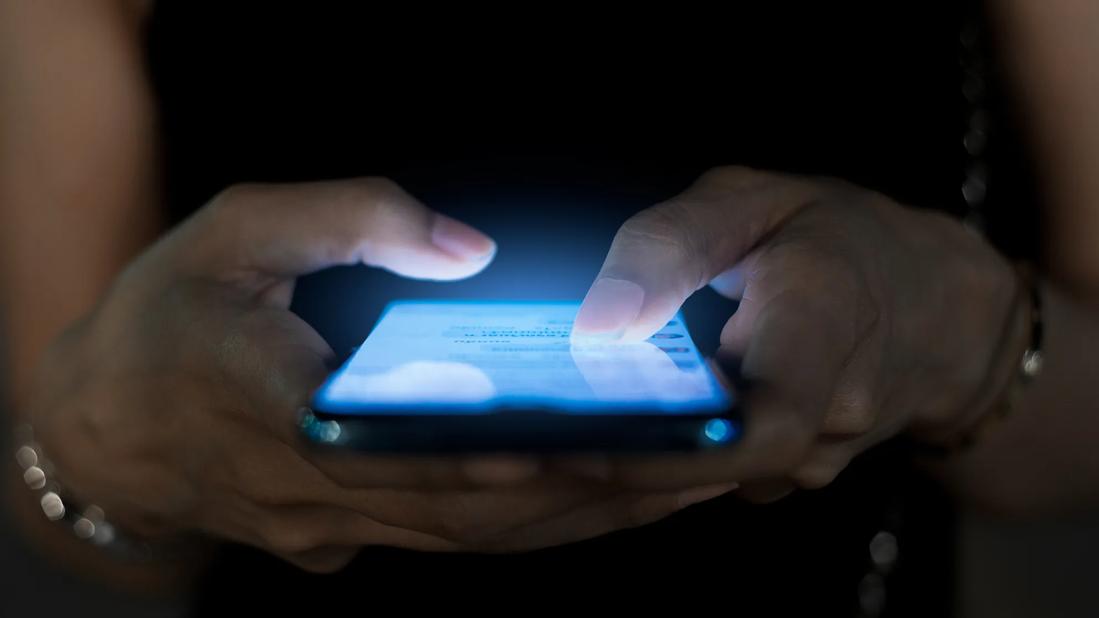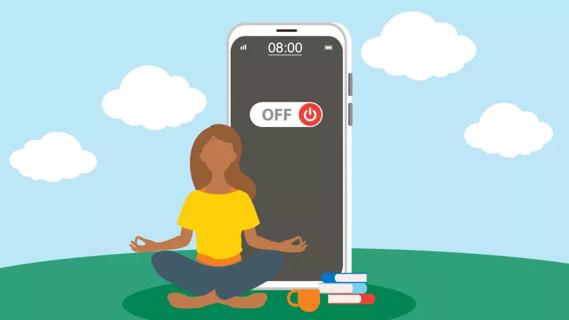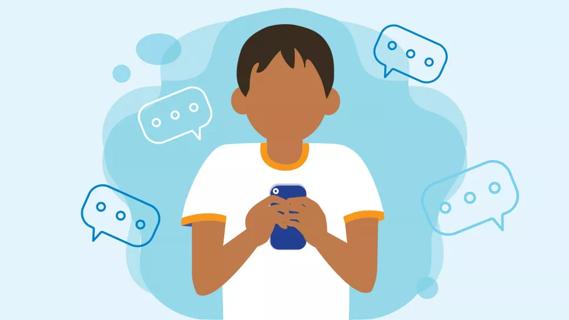Too much blue light, especially from digital sources, may lead to eye strain and computer vision syndrome

We’ve all been exposed to blue light at one point or another. We get most of it from the sun. But as we’ve grown comfortable with technology in the digital age, our exposure to blue light has increased every time we look at a screen. Even the U.S. Department of Energy estimates that by 2035, the majority of lighting installations will use LED (light-emitting diode) technology bursting with blue light.
Advertisement
Cleveland Clinic is a non-profit academic medical center. Advertising on our site helps support our mission. We do not endorse non-Cleveland Clinic products or services. Policy
So, what does this mean for our eye health? Are we at risk of damaging our vision the more we rely on these technologies? Or is blue light safe for our eyes? Ophthalmologist Rishi Singh, MD, shines a light on these questions and more.
Blue light is a segment of the visible light spectrum with a shorter wavelength and higher frequency than most other lights we can see. The shorter the wavelength, the higher the energy that’s released — so blue light has a more profound effect on the naked eye than other kinds of visible light. In fact, blue light is so strong that it’s almost as powerful as the ultraviolet (UV) rays we get directly from the sun.
You get most of your blue light exposure from the sun. But blue light also radiates from:
Some studies have shown you run the risk of damaging your retinas when you’re exposed to excessive levels of blue light. The theory is that blue light passes through your cornea and lens directly into your retina, leading to a variety of issues resulting from digital eye strain (also known as computer vision syndrome).
Advertisement
Dr. Singh says when you stare at screens all day and interact too much with a blue light source, you could experience:
More research is needed to determine exactly how much blue light is safe for your eyes and overall eye health. We don’t really know if it’s blue light specifically that causes these effects or if these effects are a result of eye strain in general.
But the problem with current research is that there has yet to be a single long-term study that looks at how blue light affects someone over their entire lifetime.
“So far, there is no true, strong, long-term study to show either way that blue light is harmful or beneficial,” clarifies Dr. Singh.
Most things are good when handled in moderation. If you’ve caught yourself rubbing your eyes more than once, you may need to pare back on blue light tech — or at least find ways to reduce any troubling symptoms. And what’s tricky is that blue light glasses don’t really work. But there are some healthy ways you can interact with blue light:
You can’t fully get away from blue light, but you can at least take some precautions. Using blue light in moderation and treating any symptoms or issues as they pop up are key.
If you’re practicing these steps (including using eye drops) for a couple of weeks and still have issues, make an appointment with your primary care provider or an optometrist to see if there’s a better solution.
Advertisement

Sign up for our Health Essentials emails for expert guidance on nutrition, fitness, sleep, skin care and more.
Learn more about our editorial process.
Advertisement

It isn’t a recognized mental health disorder, but research shows that problematic social media use can negatively affect your mental health, self-esteem and sleep

When done in excess, watching TV can disrupt your sleep and lead to physical inactivity and social isolation

Imagination, completing tasks and social interactions are all key benefits for your brain

They’re fun to watch, but medical TV shows are often more hype than reality — and you shouldn’t rely on them for factual medical information

Embrace mindfulness and practice checking your phone consciously, not compulsively

Identify your triggers, set ground rules for your break and start practicing mindfulness

Too much screen time and unrealistic expectations and perceptions and can lead to an increased risk of anxiety and depression

It can affect your child’s development, but not in a way you might think

Even small moments of time outdoors can help reduce stress, boost mood and restore a sense of calm

A correct prescription helps your eyes see clearly — but as natural changes occur, you may need stronger or different eyeglasses

Both are medical emergencies, but they are very distinct events with different causes